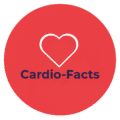Cardiovascular Conditions
At CardioFacts, we are committed to providing accurate, up-to-date, and easy-to-understand information about the most common cardiovascular conditions. Whether you’re a patient, caregiver, or simply looking to understand more about heart health, this section will guide you through the essentials.
Common Heart Conditions
🔹 Hypertension (High Blood Pressure)
Often called the “silent killer,” high blood pressure can cause long-term damage to the heart, arteries, and kidneys if left untreated.
- Symptoms: Often none; sometimes headaches or dizziness.
- Diagnosis: Routine blood pressure checks.
- Treatment: Lifestyle changes, medications, regular monitoring.
🔹 Coronary Artery Disease (CAD)
Occurs when the coronary arteries become narrowed or blocked, reducing blood flow to the heart muscle.
- Symptoms: Chest pain (angina), shortness of breath, fatigue.
- Diagnosis: ECG, stress testing, coronary angiography.
- Treatment: Lifestyle modification, medications, stenting, or bypass surgery.
🔹 Heart Failure
A condition where the heart can’t pump blood effectively, leading to fatigue, swelling, and breathlessness.
- Symptoms: Shortness of breath, swollen legs, rapid weight gain.
- Diagnosis: Echocardiogram, BNP blood tests.
- Treatment: Medications (ACE inhibitors, beta-blockers), diuretics, device therapy.
🔹 Atrial Fibrillation (AFib)
A common arrhythmia that increases the risk of stroke and heart failure.
- Symptoms: Palpitations, irregular heartbeat, weakness.
- Diagnosis: ECG or Holter monitor.
- Treatment: Rate/rhythm control medications, anticoagulants, ablation.
🔹 Valve Diseases (Aortic, Mitral, Tricuspid)
Malfunction of one or more heart valves may cause blood to leak backward or flow incorrectly.
- Symptoms: Fatigue, murmur, swelling, breathlessness.
- Diagnosis: Echocardiogram.
- Treatment: Monitoring, medications, surgical or percutaneous repair/replacement.
Stay Informed
We regularly update this section with new topics and evidence-based recommendations. Our goal is to empower you with knowledge to make informed decisions about your cardiovascular health.
📘 Disclaimer: The information provided on this website is for educational purposes only and is not intended to replace professional medical advice. Always consult a cardiologist or healthcare provider for personalized recommendations.
